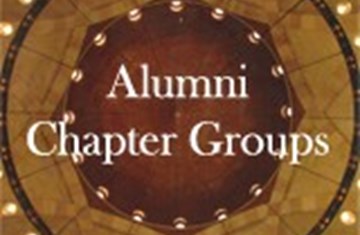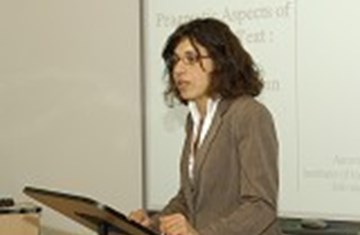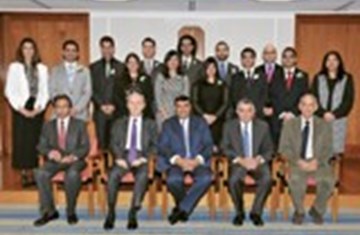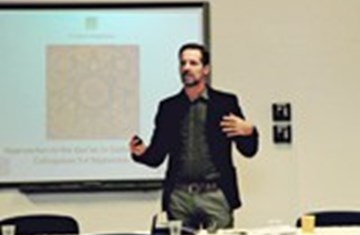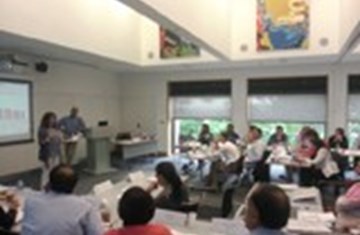IIS Research Associates Present at International Conference in Germany
Drs Nuha al-Sha‘ar and Asma Hilali, of the Qur’anic Studies Unit at IIS, attended the conference entitled Knowledge and Education in Classical Islam: Historical Foundations and Contemporary Impactat the University of Gottingen, Germany. The conference was held by The Institute of Arabic and Islamic Studies at the University of Gottingen in collaboration with the Program of Islamic Studies in Foreign Language at Al-Azhar University.
Dr Al-Sha‘ar’s paper, entitled Knowledge-Based Groups in the Buyid Period: Curriculum, Practices, and Formation of Social Identity, discussed the nature of social-intellectual groups in the Buyid period, who demonstrated, with various degrees of effectiveness, a capacity for social agency. Her presentation outlined the semi-independent groups that existed at the time, focussing on knowledge-based groups. The common practices among scholars to identify themselves through their self-conscious participation and shared interests in the study of a specific discipline of knowledge were investigated. The paper also highlighted the imposed division of labour among scholars, which resulted in a specific shift in the nature of knowledge, and in the antagonistic relationship between specific institutions of learning.
In her paper, Dr Al-Sha‘ar explained how intellectual groups defined their rules of interaction and set themselves apart from one another. The ways in which they formed their independent identities were characterised by the consolidation of certain practices and patterns of behaviour through the narrowing of doctrinal and intellectual affiliations, and the development of their own manuals and curricula. The paper explored these practices and the collection and development of curricula used at the different schools. It also drew upon the heated debate between competing groups as a way of affirming their own intellectual independent identity and their claim of exclusive possession of a body of knowledge that would save the community at large.
Dr Hilali presented a paper entitled Talab al-`Ilm project: Re-thinking the notion of “genre” in Islamic religious literature. Dr Hilali explained her aim to study some aspects of the confusion of genres in Islamic religious literature, the evolution of the notion of genre and its functions. She presented the Talab al-‘Ilm project focussing on two main examples: (1) the oldest manuscript of Qur’an, 27.1. Dar al-Mahtutat, Yemen, the so-called “Sanʿa palimpsest”; and (2) selected masyaha documents dated between the 9th and the 12th centuries CE.
The conference was attended by a large number of international delegates, scholars and students.

